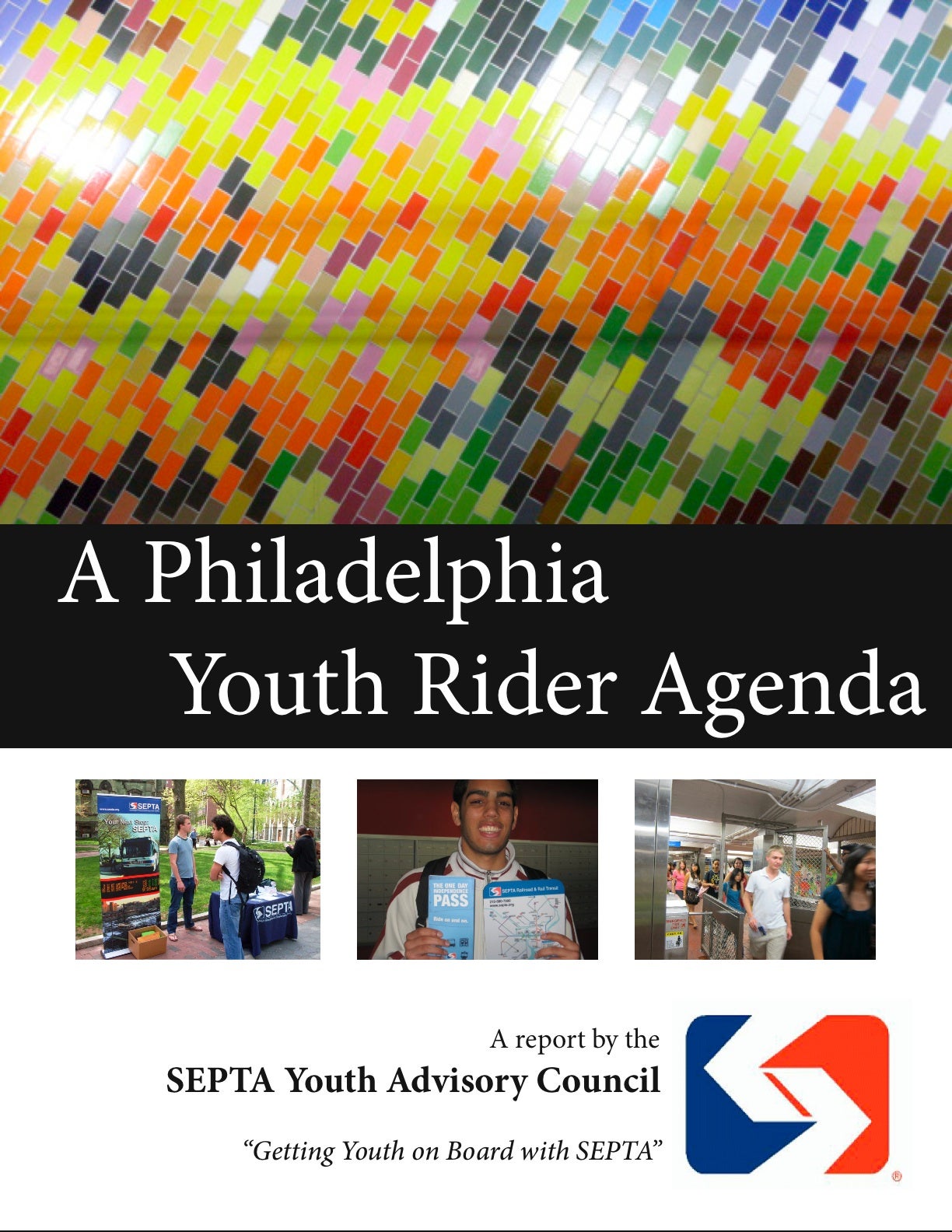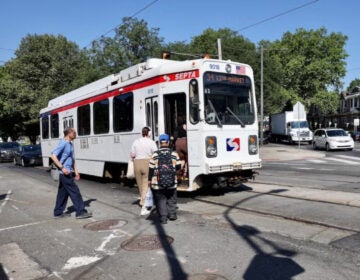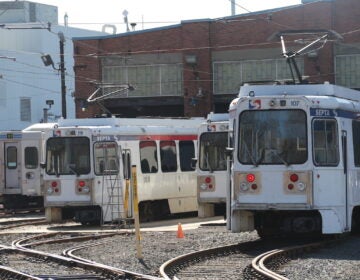Report chronicles information gap between SEPTA and youth riders

Only 22 percent of college and high school students in Philadelphia have heard of SEPTA’s Independence Pass.
And only 16 percent have heard of Mobile SEPTA, the authority’s mobile phone site.
Those statistics are just two of the findings from a recent survey measuring Philadelphia high school and college students’ public transit habits.
The results of the report, conducted by the Youth Advisory Council, which was formed to advise SEPTA on youth issues, indicate an at-times large information gap between the authority and its younger riders.
Only about 38 percent of high schoolers, for instance, report having information at their schools about SEPTA services.
The report, which surveyed 784 high schoolers and college students, is the first of its kind to specifically target this demographic, and YAC chairman Phil Dawson, a student at the University of Pennsylvania, said in an interview that the group wanted to “try to find out what were [their] needs.” Thus, it’s appropriately titled “A Philadelphia Youth Rider Agenda.”
In the end, the report makes a series of recommendations focused around five areas: offering an expanded selection of discounted student passes, extending late-night hours on city subway lines, increasing focus on public safety in SEPTA stations and vehicles, increasing access to fare instruments at colleges and extending high school pass hours for student workers.
Mindful of SEPTA’s current budget constraints, the report presents a short- and long-term suggestion for each area.
While long-term recommendations include extending hours on the Market-Frankford El and Broad Street Line from Thursday through Saturday ― to allow college students to take SEPTA back home from Center City bars ― most of the short-term recommendations focus on bridging the information gap by targeted advertising.
Many students, the report says, don’t know about SEPTA’s Nite Owl service, which provides 24 hour bus service and also replaces the El and Broad Street Line with buses that run every 15 minutes.
“There really was a lack of information,” Dawson said.
The report cites an effort by the Madrid transit authority, which rolled out large advertisements to promote the city’s late-night service in a successful effort to reduce drunk driving.
Responding to public safety concerns among students, the group recommends SEPTA partner with college police forces and organizations like the Center City District to provide more patrols of transit stations at night.
At the same time, it notes that “basic information on both safety features and crime rates on the system (which are actually quite low) are not as accessible” as they should be. The idea being that SEPTA suffers from a perception problem more than an actual safety problem and that the authority isn’t doing enough to push itself as a safe transportation option.
At the same time, the report calls on local schools and universities to provide more information and better access to student and other discounted fares ― which the group says aren’t being utilized in large numbers.
The group also wants SEPTA and the School District to extend student pass privileges (currently under threat because of proposed state budget cuts) another hour, to 8 p.m., for high schoolers who have after-school jobs. This change, the YAC argues, will make it easier for students to get home at night.
Still, the report pins much of its hopes on the new smart card fare collection system under development, which it hopes will lead to more flexible options for student passes and discounts.
Dawson, for one, would like to see SEPTA accepts student identification cards as passes and says the YAC has been invited to participate in internal discussions about the smart card system.
He added that the response from SEPTA to the report has been positive.
General manager Joe Casey, who reviewed the report before its release a few weeks ago, praised it at April’s SEPTA Board meeting.
As a follow up, the group plans on releasing a report on suburban students’ transit needs later this year.
Contact the reporter at acampisi@planphilly.com
WHYY is your source for fact-based, in-depth journalism and information. As a nonprofit organization, we rely on financial support from readers like you. Please give today.






